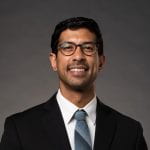
Byron Joyner, MD, MPA
The Names & Pronunciations Initiative (NPI) is a community project that aims to help people pronounce each other’s names correctly. All of us are many things. But our names define us. As our community becomes more diverse, NPI will help us correctly pronounce others’ names. NPI does this very simply: it makes physical pronunciation tags that can be layered behind our hospital ID badges.
In partnership with the Office of Healthcare Equity – and many other UW Medicine groups, I am proud to support this project as it helps us to get to know each other better. This month I have invited the NPI project lead, UW 4th year UWSOM medical student Sudiptho (suh-dip-doe) Paul, to share NPIs’ origins. It is my hope that NPI will help everyone feel welcome in our community.
Byron Joyner, MD, MPA
Vice Dean for Graduate Medical Education, Designated Institutional Official

Sudiptho Paul, MS4
The inspiration behind the Names & Pronunciations Initiative (NPI) stems from a personal journey marked by an awareness of the impact that mispronunciations can have on one’s sense of self and belonging. Having navigated predominantly white spaces in my youth, college, and work as a first-generation Bangladeshi-Thai American, I experienced firsthand both the subtle and significantly negative impacts of name mispronunciations on my educational and professional development and well-being—an “othering” experience common to many people.
This awareness continued during virtual medical school amid the challenges of the COVID-19 pandemic when particularly distressing mispronunciations of my name drove me to address the issue more proactively. Having successfully advocated for the integration of NameCoach—a program facilitating audio recordings of name pronunciations—into the medical school’s online systems, it became apparent during my clinical rotations that something more tangible was needed for the face-to-face clinical settings.
Hence, I started NPI, which involved the creation of physical name pronunciation tags as a simple communication aid. Designed to layer behind UW hospital ID badges, these tags function as a helpful tool to facilitate more accurate name pronunciations in-person. NPI empowers individuals to cultivate stronger interpersonal relationships for communication and collaboration in our community— connections start with our names.
![Example of Names & Pronunciation Initiative Badge. Learn more about the project online [QR Code]. My name is pronounced:](https://sites.uw.edu/uwgme/files/2024/01/Badge-Example-25ed619a14af647a-150x150.jpeg) Implementing NPI required perseverance and teamwork to translate awareness into action. Despite facing initial setbacks in grant applications, the project eventually secured support through the 2023 UW Resilience & Compassion Seed Grant. The setting was ripe for collaboration, as I came to learn that other students, residents, fellows, attendings, and staff had also had similar conversations about the importance of correct name pronunciations. Coming together, we designed the tags, developed strategies for their distribution across the Washington, Wyoming, Alaska, Montana, Idaho (WWAMI) region, and engaged with various UW Medicine affiliated groups to foster the project’s success in our community. I also built NPI’s website, which serves as an information hub where people can order pronunciation tags and find other resources. Beyond improving name pronunciations, I want these tags to also prompt us all to reflect more about our names’ role on our identities. Who named you and why? How does it feel when it is pronounced correctly versus incorrectly? What does your name mean to you and what does it represent?
Implementing NPI required perseverance and teamwork to translate awareness into action. Despite facing initial setbacks in grant applications, the project eventually secured support through the 2023 UW Resilience & Compassion Seed Grant. The setting was ripe for collaboration, as I came to learn that other students, residents, fellows, attendings, and staff had also had similar conversations about the importance of correct name pronunciations. Coming together, we designed the tags, developed strategies for their distribution across the Washington, Wyoming, Alaska, Montana, Idaho (WWAMI) region, and engaged with various UW Medicine affiliated groups to foster the project’s success in our community. I also built NPI’s website, which serves as an information hub where people can order pronunciation tags and find other resources. Beyond improving name pronunciations, I want these tags to also prompt us all to reflect more about our names’ role on our identities. Who named you and why? How does it feel when it is pronounced correctly versus incorrectly? What does your name mean to you and what does it represent?
NPI can be regarded as a grassroots initiative driven by our community’s collective commitment to inclusivity. I hope this project’s manifestation inspires others to act on other issues, regardless of how minor a problem may seem—it is about encouraging small steps that contribute to a larger improvement in culture within UW Medicine and beyond.
Sudiptho Paul
4th Year Medical Student
University of Washington School of Medicine
